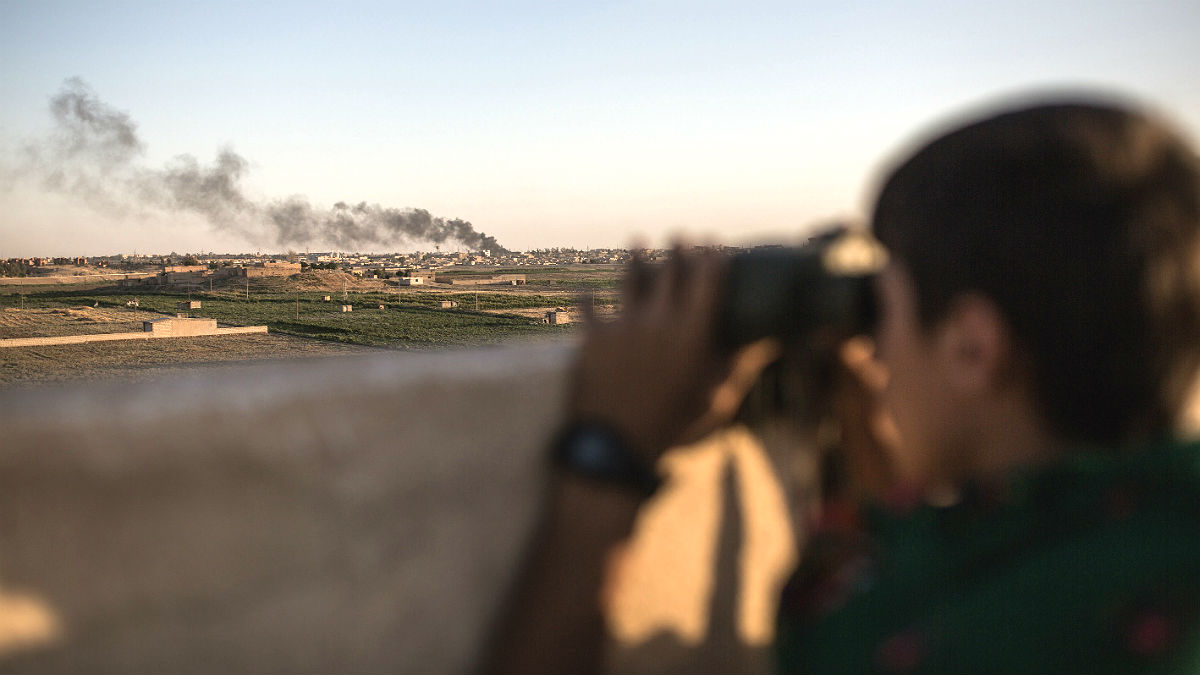Islamic State 'used mustard gas found in Assad stockpile'
US government source claims fighters used chemical weapon on Iraqi Kurdish fighters earlier this week

A free daily email with the biggest news stories of the day – and the best features from TheWeek.com
You are now subscribed
Your newsletter sign-up was successful
Islamic State (IS) used mustard gas against Iraqi Kurds fighting in northern Iraq earlier this week, a US government source has told the Wall Street Journal (WSJ). The WSJ says the weapons must have come from a secret Syrian stash.
The German defence ministry said that around 60 Iraqi Kurd 'Peshmerga' fighters were reported to have throat injuries of the type caused by chemical weapons after an attack by IS late on Wednesday about 40 miles southwest of Erbil in northern Iraq.
Now the unnamed source tells the WSJ that the news confirms what US intelligence had already suspected: Syrian president Bashar al-Assad hid a secret stockpile of chemical weapons and these have fallen into the hands of IS.
The Week
Escape your echo chamber. Get the facts behind the news, plus analysis from multiple perspectives.

Sign up for The Week's Free Newsletters
From our morning news briefing to a weekly Good News Newsletter, get the best of The Week delivered directly to your inbox.
From our morning news briefing to a weekly Good News Newsletter, get the best of The Week delivered directly to your inbox.
In 2013, Barack Obama and Vladimir Putin brokered a deal under which Assad supposedly destroyed all his chemical weapons but inspectors said later they had not been able to verify the destruction of mustard agent, which creates the gas.
Now IS has control of parts of Syria close to where Assad once stored chemical weapons, says the WSJ, suggesting his regime hid a cache of them. The other possibility is that they were found by IS in Iraq and date from Saddam Hussein's time.
In an editorial published last night, the WSJ decries two foreign policy "failures" of Barack Obama's presidency: the failure to ensure Assad destroyed his weapons and the failure to commit enough force to fighting IS.
The news is "worrisome", says the WSJ, marking a significant "upgrade" in IS's capabilities. Frontline Kurdish, Iraqi and moderate Syrians resisting the rise of IS's 'caliphate' are already complaining they don't get enough support from the US.
A free daily email with the biggest news stories of the day – and the best features from TheWeek.com
US intelligence agencies are still trying to work out how the mustard agent was 'delivered' on the battlefield.
There is no evidence yet that IS has obtained any more of the lethal chemical weapons Assad was known to possess, such as sarin or VX. However, it is believed that IS has already used chlorine gas in combat.